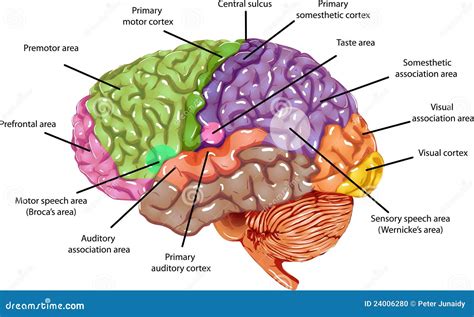Fuel your peak performance: What nutrition maximizes energy and focus all day?

The Crucial Link Between Nutrition and Performance
In today’s demanding world, maintaining high energy levels and sharp focus throughout the day is paramount for productivity, well-being, and achieving your personal best. While factors like sleep and stress management play a role, the fuel you provide your body through nutrition is arguably the most fundamental determinant of your daily performance. It’s not just about avoiding a crash; it’s about optimizing your internal systems to function at peak efficiency, consistently.
Imagine your body as a high-performance engine. Just as a finely tuned machine requires the right type and quality of fuel to run smoothly and powerfully, your body and brain depend on specific nutrients to produce energy, maintain cognitive function, and manage stress. The right dietary choices can stabilize blood sugar, reduce inflammation, support neurotransmitter production, and provide the sustained energy release needed to conquer your day.

Macronutrients: The Foundation of Sustained Energy
The three main macronutrients – carbohydrates, proteins, and fats – each play a distinct yet interconnected role in fueling your body and mind.
Complex Carbohydrates: The Steady Fuel Source
Unlike simple sugars that offer a quick spike followed by a crash, complex carbohydrates provide a slow, steady release of glucose into the bloodstream. This sustained energy is crucial for maintaining stable blood sugar levels, preventing fatigue, and ensuring a consistent supply of fuel for brain function.
- Good sources: Whole grains (oats, brown rice, quinoa), fruits, vegetables, legumes.
Lean Proteins: For Muscle Repair and Satiety
Protein is essential for building and repairing tissues, but it also plays a significant role in satiety and the production of neurotransmitters like dopamine and norepinephrine, which impact alertness and focus. Consuming protein with carbs helps slow down glucose absorption, further stabilizing energy.
- Good sources: Lean meats, poultry, fish, eggs, dairy, beans, lentils, tofu, nuts, seeds.
Healthy Fats: Brain Power and Nutrient Absorption
Healthy fats are vital for brain health, hormone production, and the absorption of fat-soluble vitamins. They provide a dense, long-lasting energy source and contribute to satiety, helping to prevent hunger pangs that can derail focus.
- Good sources: Avocados, nuts, seeds, olive oil, fatty fish (salmon, mackerel).

Micronutrients and Hydration: Fueling Mental Clarity
Beyond the macros, a host of vitamins, minerals, and water are critical for optimal energy production and cognitive function.
B Vitamins: The Energy Transformers
The B-vitamin complex (B1, B2, B3, B5, B6, B7, B9, B12) is instrumental in converting food into energy. Deficiencies can lead to fatigue, poor concentration, and mood disturbances.
- Good sources: Whole grains, leafy greens, eggs, meat, fish, legumes.
Magnesium and Iron: Essential for Vitality
Magnesium is involved in over 300 biochemical reactions in the body, including energy production and nerve function. Iron is crucial for oxygen transport throughout the body, including to the brain. Low iron levels can cause extreme fatigue and impaired cognitive function.
- Good sources (Magnesium): Leafy greens, nuts, seeds, whole grains, dark chocolate.
- Good sources (Iron): Red meat, lentils, spinach, fortified cereals.
Omega-3 Fatty Acids: Brain’s Best Friend
EPA and DHA, found in omega-3s, are integral components of brain cell membranes and are crucial for cognitive health, memory, and focus. They also possess anti-inflammatory properties.
- Good sources: Fatty fish (salmon, mackerel, sardines), flaxseeds, chia seeds, walnuts.
The Power of Water: Staying Hydrated for Sharpness
Even mild dehydration can lead to fatigue, headaches, and a significant drop in concentration and mood. Water is essential for every bodily function, including nutrient transport and waste removal.
- Tip: Aim for 8-10 glasses of water daily, more if exercising or in hot climates.

Strategic Eating for All-Day Energy and Focus
It’s not just what you eat, but also when and how much. Strategic meal timing can optimize nutrient delivery and maintain stable energy levels.
Don’t Skip Breakfast
A balanced breakfast kickstarts your metabolism and provides the first round of fuel for your brain, setting the stage for a productive day. Aim for a mix of complex carbs, protein, and healthy fats.
Balanced Meals and Regular Intervals
Consuming moderately sized, balanced meals every 3-4 hours helps maintain stable blood sugar and energy levels. Avoid going too long without food, as this can lead to energy dips and overeating later.
Smart Snacking Choices
If you need a boost between meals, opt for snacks that combine protein and fiber to keep you feeling full and focused. Examples include an apple with peanut butter, a handful of almonds, or Greek yogurt with berries.

Foods to Embrace, Foods to Limit
Power-Packed Foods for Energy and Focus
- Berries: Rich in antioxidants, support brain health.
- Leafy Greens: Packed with vitamins, minerals, and antioxidants.
- Nuts and Seeds: Healthy fats, protein, fiber, and micronutrients.
- Avocado: Monounsaturated fats for brain health.
- Eggs: High-quality protein and choline, vital for memory.
- Fatty Fish: Excellent source of Omega-3s.
- Quinoa/Oats: Complex carbohydrates for sustained energy.
- Water: The ultimate hydrator.
Energy Zappers to Minimize
- Sugary Drinks and Processed Foods: Lead to blood sugar spikes and crashes, poor nutrient density.
- Excessive Caffeine: While a small amount can boost focus, too much can lead to jitters, anxiety, and eventual crashes.
- Refined Grains: Lack fiber, processed quickly into sugar.
- Trans Fats: Harmful to overall health, can impair cognitive function.

Integrating Peak Performance Nutrition into Your Life
Making sustainable changes requires planning and consistency. Start by incorporating one or two new habits and gradually build from there.
- Meal Prep: Prepare healthy meals and snacks in advance to avoid last-minute unhealthy choices.
- Read Labels: Be aware of hidden sugars and unhealthy fats in packaged foods.
- Listen to Your Body: Pay attention to how different foods affect your energy and focus.
- Balance is Key: Don’t strive for perfection; aim for consistency and balance. Occasional treats are fine, but your baseline diet should be nutrient-rich.
Conclusion: Invest in Your Fuel, Invest in Your Day
Optimizing your nutrition is a powerful investment in your daily energy, focus, and overall performance. By making conscious choices about the macronutrients, micronutrients, and hydration you provide your body, you can unlock a sustainable source of vitality and mental clarity. Fueling your body smartly isn’t just about feeling good; it’s about empowering yourself to tackle challenges, sustain concentration, and consistently operate at your peak, day after day.








